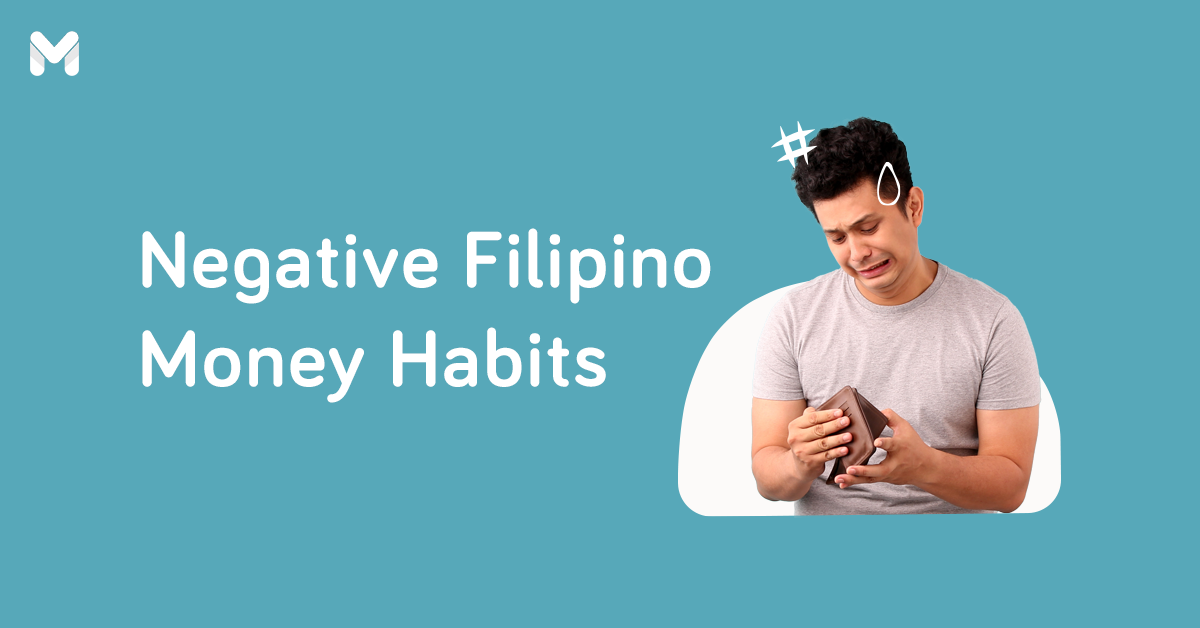
Your credit history is important as this could be your key to an approved credit card, postpaid broadband plan, or personal loan just when you need it for emergency situations.
However, there are times when you lose track of your credit card use, and this will eventually your impact your credit score.
Having a good credit history puts you in a position where you'd have FEWER difficulties taking out a loan or another credit card. Similarly, your credit score shows banks and other financial institutions what kind of debts you have, how much money you owe, and whether or not it was paid on time.
Here are some of those ways:

1. Run up a large balance on credit card.
The credit card balance is the unpaid amount on your credit card. Leaving a large amount in your credit card balance can hurt your credit history. This may mean that you spend a lot and do not pay them right away, or you only pay the minimum amount every cut-off.This means that the remaining amount piles up and acquires late fees and additional interest.
How to avoid it: You can set when to pay the balance on your card. It's to your advantage if you set your credit card payments when your paycheck comes in.
2. Inconsistent Payments
Inconsistent payments on your credit card bill eventually reflect on your credit history. It's all too easy to ruin your credit score by not paying on time, or paying only the minimum amount versus the full amount. Lenders consider a borrower inconsistent when they miss payments on several billing cycles, leading to the account holder being tagged as a delinquent payer. Missed payments on some accounts may not be as harmful to your score compared to missing all your accounts, but it makes your credit score a little less than pristine.
How to avoid it: Lenders usually look at your 6 to 12-month course of payment history, presenting as a consistent payer means being able to pay your dues every billing cycle. You run less risk of being flagged as a delinquent payer - and being charged additional fees - if you're paying your bills in full and on time.

3. Closing several accounts at once
When we think of avoiding debt, the natural tendency is to cancel or close the account. A part of the computation of your credit score is the length of your credit. Closing all your accounts - especially the oldest one - will make your credit history shorter than it really is. Up to one-third of your credit score is your debt utilization ratio, meaning the longer your credit history, the better your credit score can be determined.
How to avoid it: Closing down your oldest credit account will decrease your total amount of available credit. As 15% of your credit score is determined by the length of time you've used credit, the best way to avoid losing much of your credit history is to close newer accounts, if you have them. If you're having issues with payment, the best route will be to ask that your account can be restructured, allowing you to pay off the debt while not damning your credit score completely.
4. Opening several accounts at once
The reverse of the above can also be a costly mistake towards your credit score. Taking credit and loan applications to financial institutions within a short period of time will cause your credit score to drop. Account holders who take out multiple loans or credit cards within a short span of time can get their accounts flagged for every inquiry made against their credit report, something that happens when you apply for a new credit card or loan.
How to avoid it: Multiple inquiries on your credit history can be a mark of a credit history with mistakes and problems. You can prevent ruining your credit history this way by waiting on your other accounts to be fully paid, or spacing your loan applications to a year, as inquiries aren't factored into your credit score after 12 months have passed.
Final Thoughts
It's important to remember that your credit score goes down when you close accounts, depriving you of a larger credit limit and giving the impression that you're spending more relative to the credit limit you currently have.
A healthy credit score means having the capacity to maintain the use and payment of loans or credit cards, or spacing amounts borrowed as far as you've already paid.










